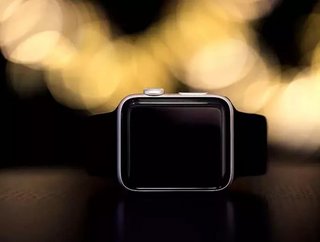Apple’s FDA-cleared Apple Watch band underlines its growing healthcare focus

Apple is increasing its focus on the healthcare sector. With Apple Chief Operating Officer Jeff Williams recent comments to CNBC, explaining that “the future of medicine involves the patient at the centre of the health experience armed with data,” the company is seeing the growing potential of this traditional industry, and will embed new and upcoming technologies into its products to become a leader within health-tech.
The release of AliveCor’s FDA-cleared technology, the KardiaBand, will see Apple Watch users become further supported, especially those with cardiac conditions.
Electrode sensors are built into the band’s design to enable the technology to provide real-time electrocardiogram (ECG) readings via the company’s app. The accessory also detects any abnormal heart rhythms, such as atrial fibrillation.
The app will continuously monitor a user’s heartrate, and will alert a user to any abnormal activity, or where routines from previous history deviates. The band therefore utilises AI software, named SmartRhythm, to learn repeated patterns or daily activities which would impact a user’s activity, creating exceptional algorithms.
Related stories
- Med-tech could save the UK health service millions, new study finds
- GE Healthcare dives further into acquiring new technologies
- New report highlights significant growth of global healthcare cloud computing market
The KardiaBand will operate with the Apple Watch Series 1, 2 and 3, and users will have to place their thumb on the inbuilt sensor in the band, which will provide significant information within 30 seconds. All results are stored and imported into Apple Health, and can be sent to the user’s GP.
The development links with Apple’s new Heart Study app, built in partnership with Stanford University’s School of Medicine. Users will be able to take part and, if there are any abnormalities, they will be in contact with a doctor through FaceTime technology.
The focus on atrial fibrillation is significant, and is the leading cause of death for over approximately 20% of deaths, in addition to cardiac disease. Civilians normally live with symptoms for up to two years before they are diagnosed, so this new technology will help diagnose and support users prior to any lapse in health.






